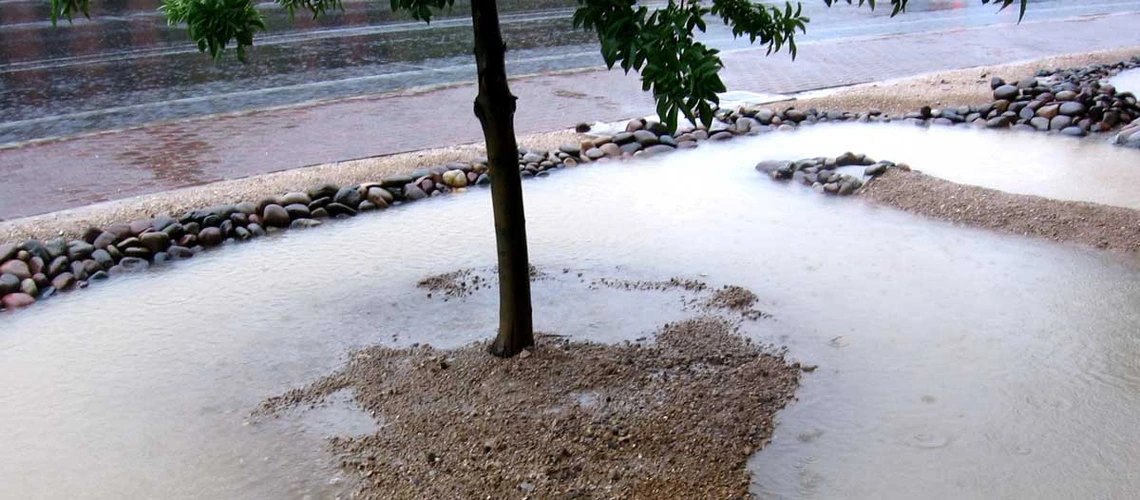WRRC Water Harvesting Tool on National Climate Resilience Website

A tool, developed by the University of Arizona Water Resources Research Center (UA-WRRC), has been added to the nation's Climate Resilience Toolkit. Throughout the Southwestern United States, climate change challenges communities to meet water demands, obtain additional water supplies, and construct additional infrastructure, all while ensuring enough water for environmental needs and for cooling the urban environment. Harvesting rainwater and stormwater provides a multitude of benefits, which include water savings, cost savings, reduced flood peaks, stormwater quality management, habitat enhancement, and reduction of urban heat island effects. The UA-WRRC created the Water Harvesting Assessment Toolbox (WHAT) to help communities in the Southwest understand the role water harvesting can play in meeting water resource challenges while providing multiple additional benefits.
Now WHAT has been recognized as a useful tool for inclusion in the U.S. Climate Resilience Toolkit, a website established to provide scientific tools, information, and expertise to help people manage their climate-related risks and opportunities. In response to President Obama's Climate Action Plan and Executive Order, U.S. federal government agencies have gathered resources that can help people take action to build their climate resilience. Communities can find WHAT among the collected tools and use it to learn about water harvesting and to develop an assessment process for employing water harvesting to capture its multiple benefits. It also introduces water harvesting techniques and suggests ways to implement locally appropriate water harvesting efforts.
You can find WHAT on the U.S. Climate Resilience Toolkit at
https://toolkit.climate.gov/tool/water-harvesting-assessment-toolbox
or on the WRRC's Desert Water Harvesting Initiative website at

